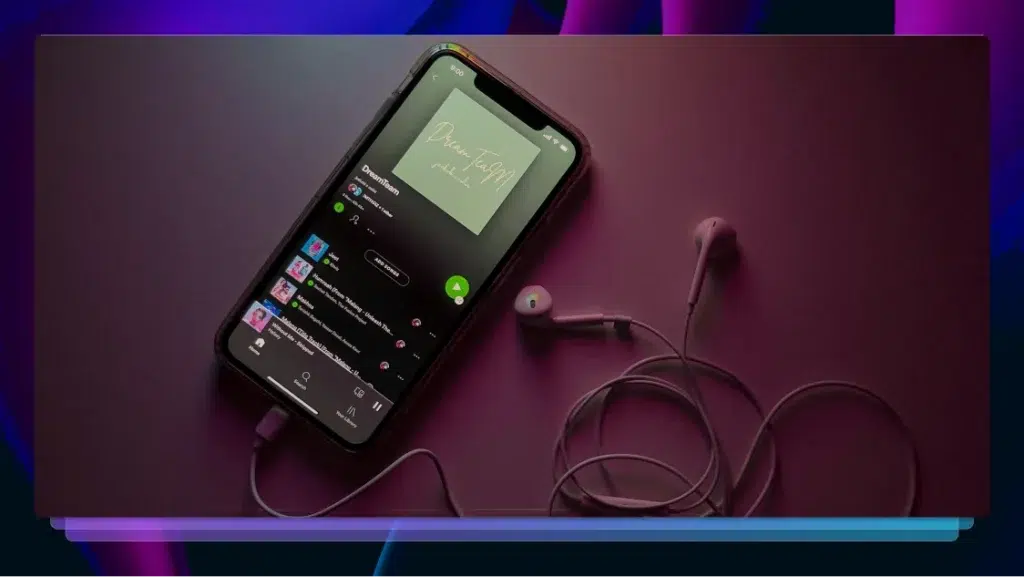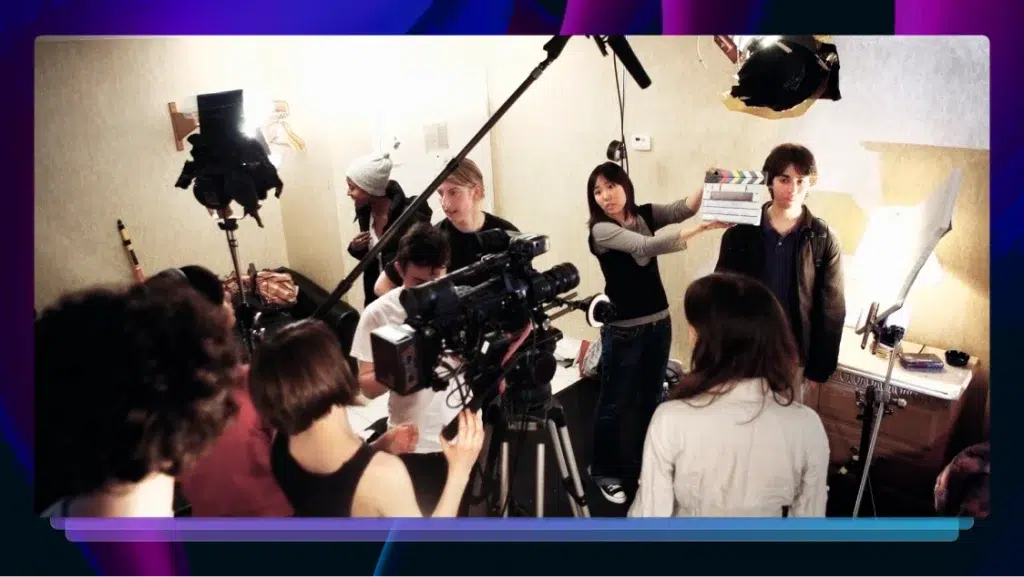Best Ways for Journalists to Transcribe Interview Audio & Video
What do you do when you want to transcribe audio to text? Journalists can look for these three things to make the best decision for their audiences.

Interviews, transcriptions, and coffee. Also known by journalists as the holy trinity.
We transcribe interviews while drinking coffee. Drink coffee while coordinating interviews. Conduct interviews over coffee.
Our articles depend on quality interviews that give us something to transcribe and quote. Then, we depend on coffee to get us through the late night grind that is transcription work. There’s a lot of co-dependency here, mostly on coffee.
But it’s the circle of news writing, honestly. And if you ask any journalist who’s been tasked to transcribe audio to text, the coffee is quite possibly the most important part.
Best Option: Professional Transcription Service
As a journalist with facts to check and deadlines to meet, it sucks to be stuck transcribing your own audio files. And the cringe-worthy feeling that comes along with listening to the sound of your own voice is just the beginning.

There are many better solutions to transcription work than doing it all yourself, but just three main factors you’ll want to consider when choosing the best transcription service for journalists. Those three factors are accuracy, price, and turnaround time.
If you’re a journalist who swoons at the thought of handing your interview recordings off to a professional to transcribe audio to text, there are three main factors to consider:
- Accuracy — What level of accuracy is guaranteed on each file?
- Price — Is the cost of the transcription service within your budget?
- Turnaround time — How long will it take to get your interview file back?
These are questions you’ll want answers to. Here’s a little bit more information on each of those factors, and why it should be a part of what you consider when looking for a service that will transcribe audio to text.
1. Accuracy
In news writing, accuracy is extremely important. Your credibility as a journalist depends on it.
When it comes to accuracy in interview transcription, it’s important to ask yourself what the end use of an interview transcript will be.
- Will the transcript be shared with other people on your team? If so, accuracy is important to make sure that the context of your interview isn’t clouded by mistakes.
Do you plan to publish the transcript? If so, accuracy is important to make sure you don’t misquote you interview subject in a public forum. - Do you plan to publish the transcript? If so, accuracy is important to make sure you don’t misquote you interview subject in a public forum.
- Will you be pulling direct quotes from the transcript? If so, you need to rely on a human transcription service or take the time to make sure that any quote you use in your article was typed exactly as it was spoken in your interview recording.
Human vs. Automatic Transcription Services
Depending on how you answer the questions above, you may decide that a professional human transcriptionist is right for you. Alternatively, you may realize that an automatic solution can do the trick. Let’s discuss the differences between human transcription and automated transcription services.
Using a Professional to Transcribe Audio to Text
When it comes to transcription, humans are and probably always will be more accurate than machines. If you need an accurate transcript the first time around, a professional transcription service, like Scribie, Rev or TranscribeMe, that guarantees 99% accuracy is the way to go.
When you depend on a professional transcription service, you spend a little bit more ($1 per audio minute), but get a better result in return. Reason being, humans are able to catch the nuances of conversations and sift through less than perfect audio much better than a machine can. Many professional journalists at news organizations like The New York Times, Bloomberg, and Buzzfeed rely on Rev to produce accurate transcripts of their audio recordings. Those transcripts fuel the reporting in much of the news we consume.
Order a Professional Interview Transcript
Using a Machine to Transcribe Audio to Text
On the flipside, machine transcription services can get the job done faster and for less money (25 cents per audio minute) with a higher error rate. If you’re on a tight budget but have the time to spend cleaning up the rough draft of a transcript, automatic transcription might be the solution for you.
When you utilize an automatic transcription service, you save money but you might spend more time editing quotes. If you go with a speech to text service, make sure it comes with a user-friendly editor with a built-in audio player. When transcribing, there’s nothing worse than the endless clicking back and forth between your media player and a text document. An automatic transcription service is a favorite tool for thousands of independent journalists and freelancers.
Regardless of which you go with, both options beat transcribing audio to text yourself.
Order a Machine-Generated Interview Transcript
2. Price
Now that we’ve covered the difference between human and automatic transcription services and which is right for you, we’ll stick to talking about human services for the remainder of this post.
If you decide to go with a professional transcription service, it’s important to make sure that the pricing is as straightforward as possible. What we mean by that is a lot of human transcription services charge extra for things like multiple speakers and heavy accents.
Why is this important for journalists? Well, if you’re a reporter, chances are you talk to a diverse range of people. Sometimes more than one at a time. If you don’t want to be charged for things like accents and multiple speakers, you will want to find a transcription service with simple, no-hassle pricing. Trust us, your boss will thank you.
3. Turnaround Time
It’s no big secret that journalists work on tight deadlines. That means you will want to go with a transcription service that has professionals working around the clock to get your interview recordings turned around. Some transcription services charge extra for speedy delivery, but not Rev. As another part of our straightforward pricing model, we deliver files under 30 minutes in length back to your inbox in 12 hours or less.
Once you submit an audio recording, our team gets to work right away. For a lot of journalists, this is a key selling point for our services because it means that you can come home from a long evening of interviews, upload your file to Rev.com, and have your transcribed interview files waiting in your inbox before you sit down at your desk with a hot cup of coffee the next morning. Doesn’t sound so bad, does it? It definitely beats staying up all night toiling over transcribing an audio file.
Transcribe Audio to Text? Nobody has time for that.
If all of that talk about accuracy, pricing, and turnaround time doesn’t sell you on outsourcing transcription work to a pro, here’s a list of 10 things a journalist could do with 40 minutes instead of transcribing a file.
10 Things for Journalists to Do Other Than Transcribe:
- Do a little research for your next interview
- Brainstorm a fresh list of questions
- Sleuth on Twitter for quoteworthy sources
- Polish that headline you’ve been stewing on
- Bring your editor a cup of coffee (you know they need it too)
- Prepare for that next phone interview
- Download the Rev Call Recorder app
- Do a little shameless self-promotion on social
- Organize your recorded files
- Workshop an article with a fellow reporter
The points here is, there’s a lot you could be doing instead of transcription work.
What Tasks Are on a Journalist’s Plate?
In today’s newsroom, journalists are expected to be a Jack of all trades. Oftentimes, journalists juggle recording interviews, photography, finding additional quote sources, news writing, fact-checking, transcription, and more. There’s no shortage of reporting to be done, and all of the tasks that go along with quality news writing seriously add up.
That’s why, whenever possible, it’s beneficial for journalists to outsource the tasks that they can afford to get help with. Every minute counts, and when it takes the average person 40 minutes to accurately transcribe a ten-minute audio file, it might be worth it to hand off that tedious task to a professional transcriptionist.
Most writers agree that their skills and time are better spent on conducting interviews and writing articles, then transcribing audio to text. That’s why many newsrooms allow a certain budget for journalists to outsource transcription work to a professional service.
The Final Word on Transcription for Journalists
When you let someone else transcribe audio to text for you, you open your day up to spend time doing more valuable work. If you’re a journalist, transcribing audio to text is probably not the best use of your time. The good news is that when it comes to transcription services, you have a range of options depending on your budget.















